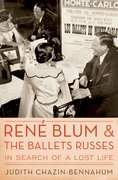How Himmler’s personality shaped the SS
As head of the SS, chief of police, ‘Reichskommissar for the Consolidation of Germanness’, and Reich Interior Minister, Heinrich Himmler enjoyed a position of almost unparalleled power and responsibility in Nazi Germany. Perhaps more than any other single Nazi leader aside from Hitler, his name has become a byword for the terror, persecution, and destruction that characterized the Third Reich.














